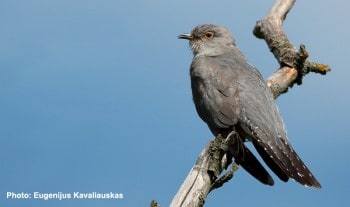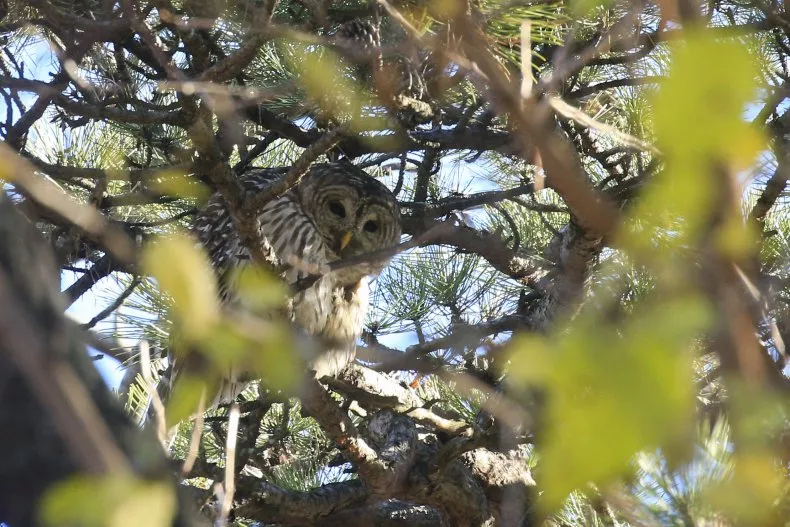It’s a bit of a relief that I have now heard my first cuckoo of the year. It’s very late – I always hear them in April, sometimes mid April, but this year it took until 7 May. I was beginning to wonder whether what I had assumed was just a delay was actually going to be an absence. I was up early, and I heard a distant cuckoo away in the mist – so I have yet to see a cuckoo this year but I know they are back.

I did know that cuckoos were coming though – thanks to the wonderful study by the BTO which has tracked cuckoos from the UK to Africa and back. Never before have we been able to see where these birds go (ringing recoveries are such a crude insight into this subject), how quickly they travel, how much they wander and which routes they take on the outward and homebound journeys. It’s a fascinating and valuable insight.
Cuckoos go ‘cuckoo!’ – so their song is not too difficult to learn. It’s obvious that some non-experts mistake the song of the collared dove for that of the cuckoo but a cuckoo is really unmistakeable.
The life of our cuckoo is amazing – they lay their eggs in the nests of host species and the young cuckoo hatches quickly, chucks out the other eggs in the nest and takes all the food that its foster parents can bring it. The cuckoo’s habit of getting others to bring up its young is where we get the term ‘cuckold’ and Shakespeare used a lot of allusions to cuckoos in his plays for this reason.
My friend Mike McCarthy, environment editor of the Independent newspaper, wrote a book about declining migrant birds called ‘Say goodbye to the cuckoo’ – it’s very good – but I’m glad I said hello to the cuckoo this morning.
Mark Avery is an independent environmental expert and writer. He spent 25 years working for the RSPB in the UK – the last 12 years of that time as the Conservation Director. Mark writes a daily blog about wildlife issues in the UK and has written several books including one which will be published in August.
Mark Avery
Dr Mark Avery is a biologist by training and a naturalist by inclination. He worked for the BirdLife International UK partner, the RSPB, from 1986-2011, with the last 12 years of that as Conservation Director. He lives in the UK in east Northamptonshire and often sees red kites over his garden. He is now a freelance writer and consultant.

Leave a Reply